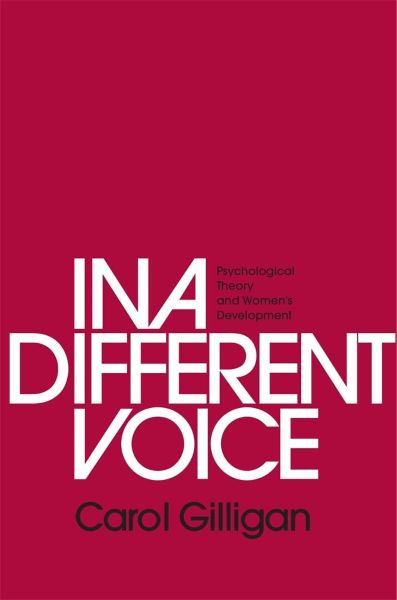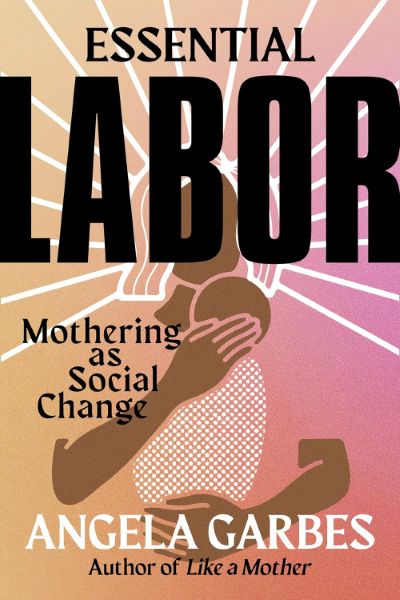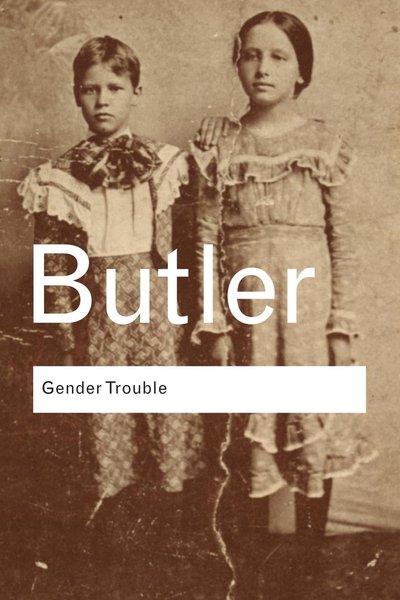In a Different Voice: Psychological Theory and Women's Development
This groundbreaking work challenges male-centric theories of moral development, proposing an alternative model of moral reasoning based on care, relationships, and responsibility. By listening to women's voices, Gilligan discovered the 'ethics of care' as a different moral voice, fundamentally transforming psychology's, ethics', and feminist theory's understanding of moral development.

📝 Book Review
In 1982, Carol Gilligan published “In a Different Voice: Psychological Theory and Women’s Development,” which Harvard University Press calls “the little book that started a revolution.” This work not only challenged fundamental assumptions in the field of psychology but redefined our understanding of morality, ethics, and human development. As a Harvard psychology professor, Gilligan, through carefully listening to the voices of women and girls, discovered a way of moral reasoning systematically overlooked by mainstream psychological theory—a voice emphasizing care, relationships, and responsibility.
The Background of a Theoretical Revolution
Gilligan’s research emerged from recognizing deep biases in the field of psychology. She observed that psychology “implicitly adopted the male life as the norm and tried to fashion women out of a masculine cloth.” Mainstream developmental theories, particularly her mentor Lawrence Kohlberg’s theory of moral development, were based on research with males, then universally applied to understand all human development.
Kohlberg’s theory, based on his 1958 dissertation, was developed entirely from a sample of boys (as he had been advised to do at the time). When this theory was applied to girls, data showed that girls on average reached lower levels of moral development than boys. This finding was interpreted as a deficiency in women’s moral reasoning rather than a problem with the theory itself.
Gilligan recognized this was not women’s failure but the theory’s failure. Psychology had been privileging the separate, autonomous self while ignoring the story of the interdependent, connected self. This bias not only distorted understanding of women but limited understanding of the full picture of human development.
The Discovery of Care Ethics
The core contribution of Gilligan’s research was identifying and articulating the “ethics of care.” Through attentively listening to girls and women with an open mind, she discovered a way of moral reasoning distinct from the “ethics of rights and justice.” While she saw this as a human voice encoded as feminine in our culture, women from different fields took this up as an aspect of women’s psychology to be valued and nurtured rather than deemed inferior in moral development.
The ethics of care starts from the premise that as humans we are inherently relational, responsive beings and the human condition is one of connectedness or interdependence. It differs from abstract and formal ethics of rights and rules—ethics of justice—as care ethics is contextual and narrative, reflecting a focus on relationships, linking emotion to reason.
Characteristics of this moral approach include: focus on concrete situations and relationships rather than abstract principles; emphasis on responsibility and responsiveness rather than rights and rules; seeking to maintain relationships and minimize harm; recognizing the role of emotions in moral decision-making; and understanding the self as embedded in relationships rather than separate from them.
Critique of Kohlberg’s Theory
Gilligan’s critique of Kohlberg’s stages of moral development theory was precise and powerful. Kohlberg’s theory proposed six stages of moral development, from preconventional (based on punishment and reward) through conventional (based on social approval and law) to postconventional (based on universal principles). This hierarchy assumes the highest form of moral reasoning is based on abstract principles of justice.
But Gilligan found that when women confronted ethical dilemmas, they tended to think and speak in a different way. Rather than appealing to abstract principles, they focused on relationships, context, and responsibilities of care. In Kohlberg’s scoring system, this approach was rated as a lower level of moral development, not because it was truly lower but because the scoring system itself favored a particular (masculine) way of moral reasoning.
For example, in the Heinz dilemma (should a man steal medicine to save his dying wife?), boys typically focused on conflicts between rights and rules, while girls were more likely to focus on relationships and seek creative solutions that would preserve all parties involved. Kohlberg’s system rated the principled response as more mature, but Gilligan argued that the relational response represented a different but equally valid form of moral maturity.
Stages of Women’s Moral Development
Gilligan developed her own stages of moral development based on her research with women rather than men. She followed Kohlberg’s basic structure of preconventional, conventional, and postconventional morality, but the content was dramatically different:
Level 1: Orientation to Individual Survival. Focus on caring for the self to ensure survival. Moral decisions are based on what is best for oneself.
Transition: From Selfishness to Responsibility. Recognition of connection to others and beginning to consider others’ needs.
Level 2: Goodness as Self-Sacrifice. Caring becomes synonymous with self-sacrifice. Goodness is equated with caring for others, often at one’s own expense.
Transition: From Goodness to Truth. Questioning the logic of self-sacrifice and recognizing the problem of excluding oneself from care.
Level 3: The Morality of Nonviolence. Understanding that care includes both self and others. Relationships are understood as interdependent rather than dependent.
Between these stages are two transitions representing critical shifts in understanding. Importantly, this sequence is not about abandoning care for justice but about developing more sophisticated and inclusive understandings of care.
Characteristics of the Different Voice
The “different voice” Gilligan describes has several key characteristics that distinguish it from the dominant voice in mainstream psychological theory:
Relational Thinking: The different voice understands moral problems in terms of webs of relationships rather than competing individual rights. Moral issues are not about adjudicating between competing claims but about maintaining and repairing relationships.
Contextual Reasoning: Moral decisions require attention to concrete details and context rather than applying abstract rules. Each situation is unique and requires careful consideration of its particularities.
Responsibility of Care: The impetus for moral action is not duty or principle but response to others’ needs. This sense of responsibility arises from recognizing human interdependence.
Sensitivity to Harm: Moral concern focuses on avoiding harm and maintaining care. This requires sensitivity to how actions affect all parties involved.
Inclusive Solutions: The ideal moral solution meets everyone’s needs rather than determining winners and losers based on abstract principles.
Impact on Psychology
“In a Different Voice” fundamentally transformed the field of psychology. It challenged the discipline’s claims to universality while systematically excluding women’s experiences. Gilligan’s work led to several important shifts:
Greater recognition of gender bias in psychological theory. More inclusive research methods that incorporate diverse voices and experiences. New attention to the role of relationships and connection in human development. Recognition of the importance of emotion in cognitive and moral reasoning. More contextualized understandings of psychological health and therapy.
Gilligan’s work also inspired new areas of research within psychology. Relational psychology flourished, focusing on how interpersonal connections shape development and well-being. Feminist psychology emerged as a distinct field, critically examining gender assumptions in psychological theory and practice.
Impact on Philosophical Ethics
Perhaps the most far-reaching impact of “In a Different Voice” was in the field of philosophical ethics. Gilligan’s work inspired and informed a feminist-oriented movement in philosophical ethics known as the ethics of care.
Care ethics challenges traditional ethical theories that have dominated Western moral philosophy for centuries. Unlike Kantian deontology that emphasizes universal principles or utilitarianism that focuses on outcomes, care ethics: starts from concrete relationships rather than abstract principles; values the role of emotions and empathy in moral reasoning; focuses on maintaining relationships and meeting needs; recognizes dependency and vulnerability as fundamental aspects of the human condition; and emphasizes caring practices rather than moral theory.
Philosophers like Nel Noddings, Sara Ruddick, Virginia Held, and Joan Tronto built on Gilligan’s foundation to develop sophisticated philosophical accounts of care ethics.
Implications for Education
Gilligan’s work has had significant implications for educational theory and practice. Recognition of different cognitive and moral styles has led to calls for: more inclusive curricula that value care and relationships as well as competition and achievement; pedagogical approaches that acknowledge multiple ways of learning; educational environments that attend to classroom community and relationships; assessment methods that recognize diverse forms of excellence and understanding; and integration of social and emotional learning with academic content.
Gilligan’s insights have particularly influenced girls’ education. Educators began recognizing that schools often reward behaviors more aligned with boys’ socialization while undervaluing strengths girls bring. This led to efforts to create more equitable educational environments that value different voices and ways of being.
Critiques and Debates
“In a Different Voice” has also generated important critiques and debates. Some criticisms include:
Concerns about Essentialism: Critics worry that Gilligan may be essentializing gender differences, reinforcing stereotypes that women are naturally more caring and men naturally more justice-oriented. Gilligan responds that she is describing cultural patterns, not biological differences.
Empirical Basis: Some researchers question the empirical evidence for gender differences in the voice. Meta-analyses have found smaller gender differences in moral reasoning than Gilligan suggested. However, supporters argue that traditional research methods may not capture the qualitative differences Gilligan identified.
Intersectionality: Critics note that Gilligan’s original research was primarily based on white, middle-class women and may not represent all women’s experiences. This has led to greater attention to how race, class, culture, and other factors shape moral voices.
The Burden of Care: Some feminists worry that emphasizing women’s caring orientation might reinforce traditional gender roles and add additional burdens on women. They fear care ethics might be used to justify women’s continued disproportionate responsibility for care work.
Later Developments
Gilligan continued developing her ideas in subsequent work. In “Meeting at the Crossroads” (1992), written with colleague Lyn Mikel Brown, she explored how girls lose their voices at adolescence. This research revealed how patriarchal culture silences girls’ authentic voices, forcing them to choose between authenticity and social acceptance.
Her later work expanded to include boys and men, showing how patriarchy also harms males by forcing them to suppress aspects of their voices deemed “feminine.” This work contributed to understanding how gender norms constrain everyone, regardless of their gender.
Contemporary Relevance
“In a Different Voice” remains profoundly relevant more than forty years after publication. In an era of #MeToo movements and growing recognition of emotional intelligence’s importance, Gilligan’s emphasis on care, relationships, and emotional context seems particularly prescient.
The COVID-19 pandemic highlighted the centrality of care work and relationships to human well-being. Recognition of “essential workers”—nurses, teachers, and other care workers (predominantly women)—echoes Gilligan’s long-standing argument about care’s fundamental moral importance.
Contemporary debates about AI ethics also reflect Gilligan’s insights. Recognition of the need for empathy, context, and relational understanding in algorithmic decision-making suggests that the “different voice” matters not just for human psychology but for how we design and implement technology.
Global Perspectives
While Gilligan’s work is rooted in the American context, it has resonated globally. Different cultures’ reception of her ideas reveals both universal patterns and culture-specific variations in moral voices.
In collectivist cultures, the relational orientation Gilligan describes may be less “different” and more dominant. This raises questions about the extent to which Western psychology has universalized its own cultural values (individualism, autonomy) as human norms.
Cross-cultural research suggests that while care and justice orientations exist in all cultures, their relative emphasis and gender associations vary across societies. This suggests moral voices are shaped by both universal developmental processes and specific cultural contexts.
Practical Applications
Insights from Gilligan’s work have been applied in various practical domains:
Healthcare: Care ethics has influenced medical ethics, emphasizing the patient-provider relationship and caring for patients as whole persons rather than just applying medical principles.
Business: Organizations increasingly recognize the value of relational skills and emotional intelligence, often associated with the “different voice.”
Law: The restorative justice movement reflects care ethics principles, focusing on repairing harm and restoring relationships rather than just punishment.
Politics: Some political theorists argue that care ethics provides important resources for thinking about citizenship, social policy, and international relations.
Social Work and Counseling: These fields have widely adopted relational approaches and attention to context and care.
Conclusion: A Harmony of Voices
Carol Gilligan’s “In a Different Voice” remains a seminal text in psychology and moral theory. By identifying and valuing a different moral voice, Gilligan not only challenged the androcentrism of her field but enriched our understanding of human moral capacity.
Gilligan’s work reminds us that genuine moral maturity may lie not in choosing between care or justice but in integrating both voices. The deepest moral wisdom may come from recognizing that we need both the clarity of justice and the responsiveness of care, both the guidance of principles and attention to relationships.
In a world facing complex moral challenges—from climate change to artificial intelligence, from global inequality to pandemic response—we need all our moral resources. Gilligan’s legacy lies in her insistence that by listening to different voices, by valuing moral orientations traditionally associated with women, we become not just more inclusive but more morally complete.
“In a Different Voice” is ultimately about expanding our moral imagination and recognizing the full range of human experience and moral wisdom. In that recognition lies hope for a world where care and justice are not opposed but complementary aspects of our shared humanity.
Book Info
Related Topics
🛒 Get This Book
 Buy on Amazon
Buy on Amazon Related Books
Book Discussion
Share your thoughts and opinions on this book and exchange insights with other readers
Join the Discussion
Share your thoughts and opinions on this book and exchange insights with other readers
Loading comments...


